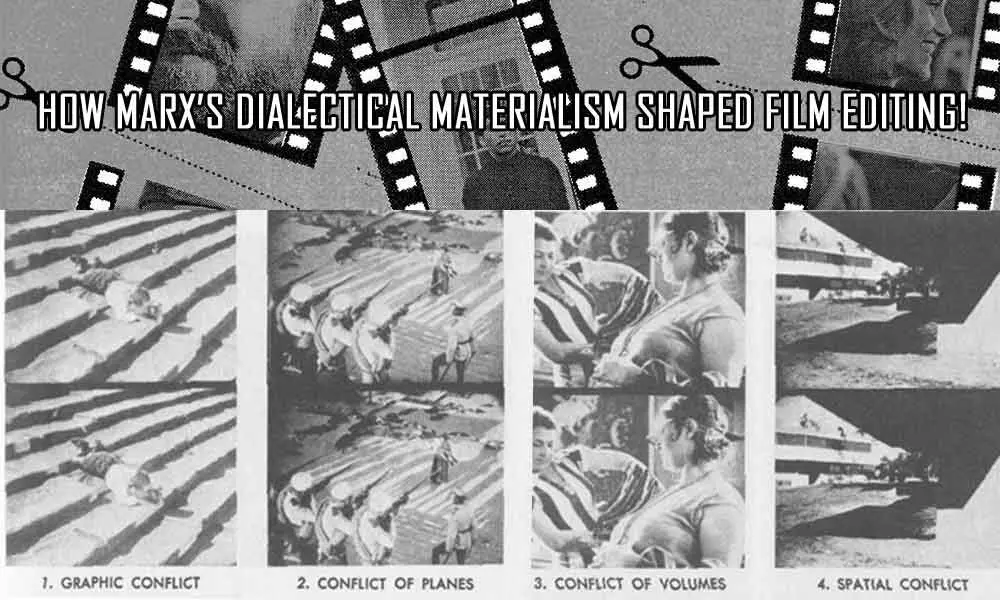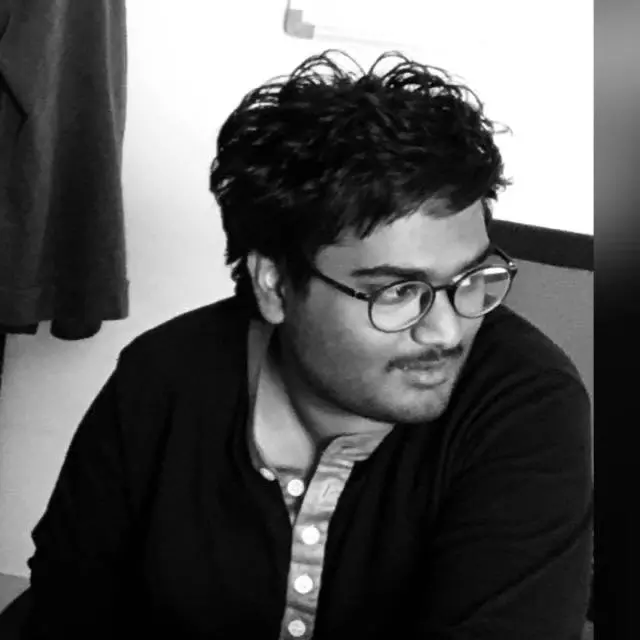How Marx'S Dialectical Materialism Shaped Film Editing!

How Marx’S Dialectical Materialism Shaped Film Editing!
Karl Marx’s great philosophical theory Dialectical Materialism influenced and lead to the rapid advances in film editing in the black and white era of world cinema!
Karl Marx's great philosophical theory Dialectical Materialism influenced and lead to the rapid advances in film editing in the black and white era of world cinema!
Sergei Einstein used the Hegelian dialectical philosophy and Marx's own theory that was a more materialistic offshoot of the same to formulate the concept of a montage in film editing. This was an early innovation in Soviet Cinema, rapidly later lead to being adapted by European and Hollywood mainstream cinema. And later on, went on to be hailed by the stalwart filmmaker Alfred Hitchcock himself.
To understand how the montage technique of cinema, one must understand the philosophy of dialectics in a nutshell. Hegel believed the conflict of ideas shape the world and take it forward. In a simple sense, there's a thesis, anthesis, and conflict that shapes the synthesis. Karl Marx gave this idea of conflict and concept a much more materialistic approach, to put it simply he believed materialistic conditions of the real world, reflected individual ideas. Or simply, the thesis and the anthesis were both shaped by much of the materialistic conditions of the world.
The technique of montage evolved from Sergei Einstein's rapid cutting of montages, of individual scenes and entire narratives, that had a thesis, anthesis, and its result a synthesis. All being rapidly showcased in a rapid sequence.
The necessity of the montage evolved much out of the need Einstein had to showcase the dialectic conflicts between various social elements, or ideologies shaped by materialistic conditions, with much symbolism. In a short time, and in a rapid fashion.
Sergei Einstein in his own words described his necessity to showcase Marxism in cinema:
"In nature, we never see anything isolated, but everything in connection with something else which is before it, beside it, under it, and over it said GOETHE.
According to Marx and Engels, the dialectic system is only the conscious reproduction of the dialectic course (substance) of the external events of the world.
Thus: The projection of the dialectic system of things into the brain into creating abstractly into the process of thinking yields: dialectic methods of thinking; dialectic materialism —
PHILOSOPHY.
And also: The projection of the same system of things while creating concretely while giving form yields: ART."
Sergei Einstein with the idea of a montage to express the Dialectical Materialism in his narrative. In his own words, he simply summarised it:
"In the moving image (cinema) we have, so to speak, a synthesis of two counterpoints the spatial counterpoint of graphic art, and the temporal counterpoint of music. Within cinema, and characterizing it, occurs what may be described as visual counterpoint In applying this concept to the film, we gain several leads to the problem of film grammar. As well as a syntax of the film"
The concept of the montage changed world cinema forever, becoming mainstream within a few years. Its a technique still used by films worldwide, it is something that continues to shape every film made on this planet.
Marx's profound influence on cinema and its techniques is vast. And deserves more and more study. Because Marx's thoughts, might even give rise to even newer techniques and lead to the further evolution of cinema as an art form itself.
REFERENCES:








